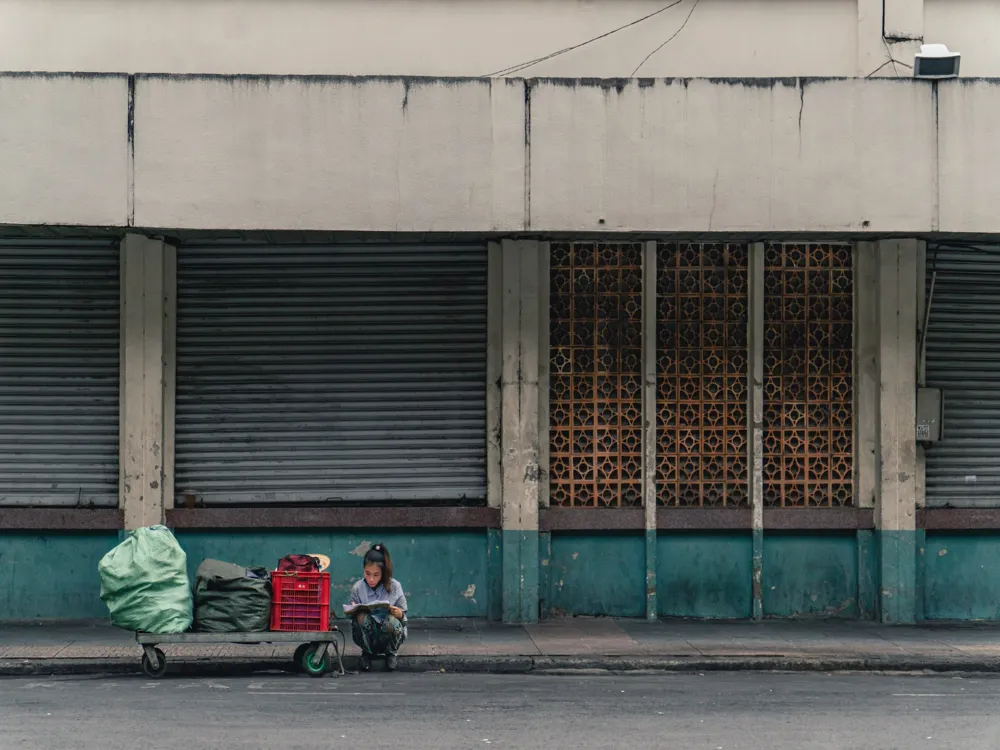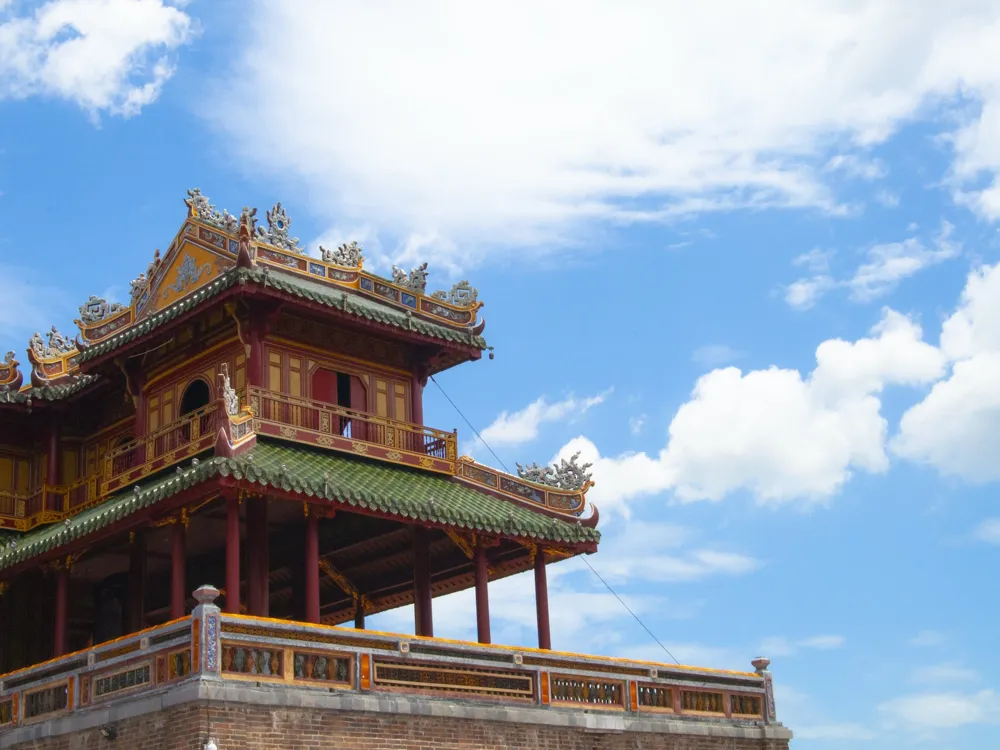Ha Chuong Hoi Quan Pagoda, nestled in the bustling streets of Ho Chi Minh City, Vietnam, is a remarkable testament to the city's rich cultural and historical tapestry. Established by the Chinese community, particularly the Fujian people, this pagoda stands as a beacon of spiritual significance and architectural splendor. Its significance is not just limited to religious aspects but extends to being a symbol of the fusion of different cultural influences that shape Ho Chi Minh City. Ha Chuong Hoi Quan Pagoda is not only a place of worship but also a cornerstone of cultural heritage, attracting numerous visitors who seek to immerse themselves in its serene and spiritually uplifting environment. The pagoda's history dates back to the 19th century, reflecting the Chinese influence on Vietnamese culture. It was originally built to serve the Chinese community, especially those from the Fujian province. Over the years, it has evolved to become a symbol of inclusivity and cultural amalgamation, welcoming visitors from various backgrounds. The pagoda is not just significant for its religious importance but also for its role in showcasing the historical ties between Vietnam and China. It stands as a testament to the enduring spirit of the Vietnamese people and their ability to blend different cultural influences into a harmonious and cohesive whole. The architecture of Ha Chuong Hoi Quan Pagoda is a splendid example of the traditional Chinese style, infused with local Vietnamese elements. The intricate designs and detailed carvings on the pagoda are a visual delight, showcasing the craftsmanship and artistic prowess of its creators. The pagoda features a striking facade, adorned with colorful ceramic tiles that depict various mythological scenes and figures. This not only adds to the aesthetic appeal of the building but also tells stories of legends and folklore that are integral to the cultural heritage of the region. One of the most distinctive features of the pagoda's architecture is its roof. The curved, multi-tiered roof is typical of traditional Chinese pagodas and is adorned with delicate carvings and statues. These statues represent different deities and mythical creatures, each with its own symbolic meaning and significance. The roof's vibrant colors and detailed decorations are a testament to the pagoda's historical and cultural value, making it a standout landmark in Ho Chi Minh City's architectural landscape. The interior of Ha Chuong Hoi Quan Pagoda is equally impressive. The main hall is a serene space, filled with the fragrance of incense and the soft glow of lanterns. It houses various altars, each dedicated to different deities and ancestors. The altars are lavishly decorated with offerings, candles, and intricate carvings, creating an atmosphere of reverence and tranquility. The walls are adorned with beautiful murals and calligraphy, telling stories of the pagoda's history and the beliefs of the people who worship there. The combination of architectural beauty and spiritual ambiance makes the Ha Chuong Hoi Quan Pagoda a must-visit destination for those interested in history, culture, and architecture. When visiting Ha Chuong Hoi Quan Pagoda, it is important to dress respectfully. This means avoiding revealing clothing and ensuring shoulders and knees are covered. This shows respect for the religious and cultural significance of the pagoda. Visitors should be aware of and sensitive to the cultural practices and traditions of the pagoda. This includes understanding the significance of certain rituals, not touching sacred objects, and being respectful of worshippers and monks. While photography is allowed in most parts of the pagoda, visitors should look for any signs indicating photography restrictions. It's important to be discreet and respectful when taking photos, especially during religious ceremonies or of worshippers. Take your time to explore the different areas of the pagoda, including the main hall, courtyards, and any adjoining rooms or gardens. Each area has its own unique features and significance, offering a deeper understanding of the pagoda's history and cultural importance. Ha Chuong Hoi Quan Pagoda is accessible by various means of transportation. Visitors can easily reach the pagoda by taxi, motorbike, or public bus. The pagoda is located in the heart of Ho Chi Minh City, making it Read MoreOverview of Ha Chuong Hoi Quan Pagoda in Ho Chi Minh City
Architecture of Ha Chuong Hoi Quan Pagoda
Tips When Visiting Ha Chuong Hoi Quan Pagoda
Dress Appropriately
Be Mindful of Cultural Sensitivities
Photography Guidelines
Exploring the Pagoda
How To Reach Ha Chuong Hoi Quan Pagoda
Ha Chuong Hoi Quan Pagoda
Ho Chi Minh City
₹ 17,501 onwards
View ho-chi-minh-city Packages
Ho-chi-minh-city Travel Packages
View All Packages For Ho-chi-minh-city
Top Hotel Collections for Ho-chi-minh-city

Private Pool

Luxury Hotels

5-Star Hotels

Pet Friendly
Top Hotels Near Ho-chi-minh-city
Other Top Ranking Places In Ho-chi-minh-city
View All Places To Visit In ho-chi-minh-city
View ho-chi-minh-city Packages
Ho-chi-minh-city Travel Packages
View All Packages For Ho-chi-minh-city
Top Hotel Collections for Ho-chi-minh-city

Private Pool

Luxury Hotels

5-Star Hotels

Pet Friendly






















